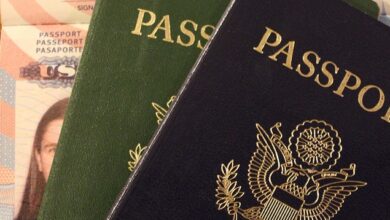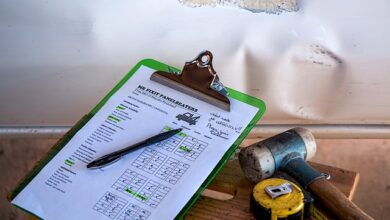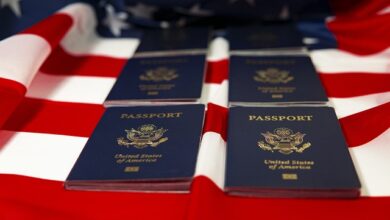Dutch Residence Permits: Types and Requirements

If you’re planning to move to the Netherlands for an extended period, obtaining a residence permit (Verblijfsvergunning) is likely a necessary step. The type of permit you need depends on your purpose of stay, nationality, and duration of your intended residency. Below is a detailed overview of the various types of Dutch residence permits and their respective requirements.
1. What Is a Dutch Residence Permit?
A residence permit grants non-EU/EEA/Swiss nationals the legal right to live and work in the Netherlands for more than three months. It is issued by the Dutch Immigration and Naturalisation Service (IND) and serves as proof that you are authorized to reside in the country under specific conditions.
2. Types of Dutch Residence Permits
a. Work Permit (GVVA – Gecombineerde Vergunning voor Vreemdelingenwerk)
This combined permit allows you to both live and work in the Netherlands. It is typically sponsored by your employer.
- Who Needs It: Non-EU/EEA/Swiss citizens seeking employment.
- Requirements:
- A valid job offer from a Dutch employer.
- Proof of sufficient income or salary meeting the minimum thresholds set by IND.
- Qualifications matching the job requirements.
- In some cases, an Orientation Year Visa (see below) may be required for highly skilled migrants.
b. Highly Skilled Migrant (Kenniscardinaal)
Designed for professionals with specialized skills who are employed by companies registered as recognized sponsors with IND.
- Who Needs It: High-level employees or entrepreneurs bringing expertise to the Dutch labor market.
- Advantages:
- Faster processing times.
- Access to the 30% ruling, which reduces taxable income.
- Requirements:
- An annual gross salary above €57,183 (or €44,592 for those under 30).
- Employment contract with a certified sponsor.
c. Orientation Year Visa (Start-up Visa)
Allows recent graduates to remain in the Netherlands for up to one year after completing their studies to search for a job or start a business.
- Who Needs It: Recent graduates from Dutch universities or international institutions.
- Requirements:
- Completion of higher education within the past two years.
- Proof of financial means to support yourself during the orientation period.
d. Student Visa
Required for non-EU/EEA/Swiss students enrolled in accredited educational programs in the Netherlands.
- Who Needs It: International students pursuing full-time courses at Dutch universities or vocational schools.
- Requirements:
- Admission letter from a recognized institution.
- Proof of tuition fees payment.
- Sufficient funds to cover living expenses (approximately €1,160 per month).
e. Family Reunification Visa
Enables family members of EU/EEA/Swiss residents or legally residing third-country nationals to join them in the Netherlands.
- Who Needs It: Spouses, partners, minor children, or dependent relatives of eligible individuals.
- Requirements:
- Proof of relationship (marriage certificate, birth certificate, etc.).
- Evidence of adequate housing and financial stability.
- Integration exam results (if applicable).
f. Self-Employed Visa
For entrepreneurs wishing to establish a business in the Netherlands.
- Who Needs It: Individuals planning to operate independently or invest in the Dutch economy.
- Requirements:
- Business plan demonstrating contribution to the Dutch economy.
- Financial resources to sustain operations.
- Approval from the IND and possibly additional assessments.
g. Asylum Seeker Status
Granted to individuals fleeing persecution or war zones, providing temporary protection until their situation stabilizes.
- Who Needs It: Refugees seeking safety and shelter.
- Process:
- Apply through the Central Agency for the Reception of Asylum Seekers (COA).
- Attend interviews and provide documentation supporting asylum claims.
h. Long-Term Resident Permit
Issued to individuals who have lived lawfully in the Netherlands for five consecutive years.
- Who Needs It: Long-term residents looking to simplify administrative processes.
- Benefits:
- Easier travel within the EU.
- Greater flexibility in employment opportunities.
3. Application Process for a Residence Permit
Step 1: Gather Required Documents
Common documents include:
- Valid passport.
- Completed application form.
- Recent passport-sized photographs.
- Proof of address in the Netherlands.
- Health insurance details.
- Criminal record clearance (if applicable).
Step 2: Submit Your Application
Applications can be submitted via:
- The nearest Dutch embassy or consulate abroad.
- Online through the IND website (for certain categories).
- Upon arrival in the Netherlands, if eligible.
Step 3: Pay the Fee
Fees vary depending on the type of permit and your circumstances. Check the IND website for updated costs.
Step 4: Attend an Interview (if Required)
Some applications require an in-person interview to verify information and assess eligibility.
Step 5: Wait for Processing
Processing times differ based on the complexity of your case and the current workload of IND. Standard processing times range from several weeks to a few months.
4. Additional Considerations
Integration Exam
Non-EU/EEA/Swiss applicants aged 16 or older must pass an integration exam covering basic Dutch language skills and civic knowledge. This requirement applies to most residence permits, except for short stays or highly skilled migrants.
Residence Permit Renewal
Most permits are initially granted for one year but can be renewed upon meeting ongoing criteria. Ensure timely submission of renewal requests to avoid lapses in legal status.
Dual Citizenship
The Netherlands allows dual citizenship under certain conditions. Consult with immigration authorities if this applies to your situation.



